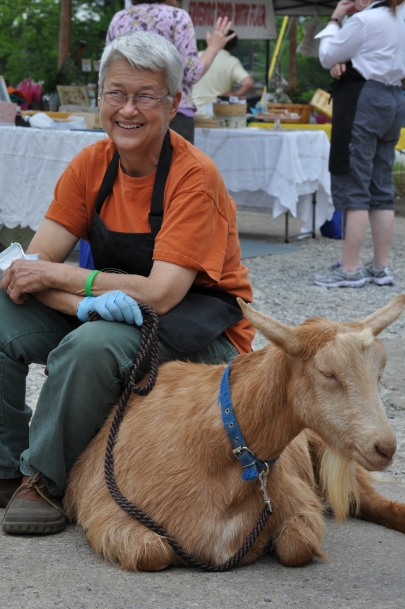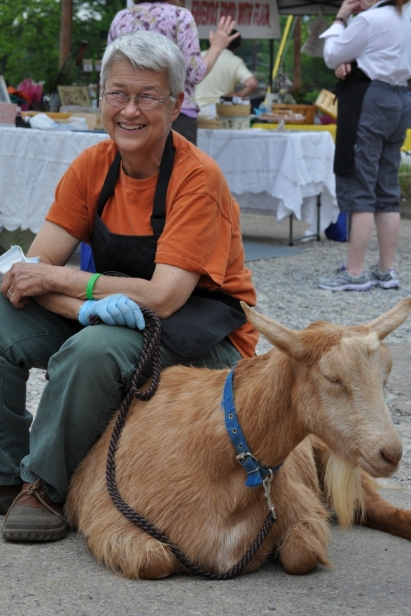The Cheesemonger: Split Creek Goat Farm
When Evin Evans purchased a bit of land in Anderson Country in 1980, she wasn't thinking of making award winning cheeses. She wasn't thinking about selling products to the finest restaurants on the East Coast and beyond. She wasn't planning to own a commercial-grade dairy, and she certainly wasn't thinking about being the top seller of feta cheese at a farmers market all the way in New York City.
"We became goat farmers evolutionarily," said Evans, owner of Split Creek Goat Farm in Anderson, SC. "I knew I liked goats, but I like a lot of animals. I didn't think I was going to be able to make a living."
Initially Evans started selling goat show stock and breeding stock. She then moved into the dairy aspects of the business, and Split Creek Goat Farm became a commercial Grade A goat in 1985. "We went from milk to cheese in a gasping effort to have the farm survive," said Evans.
Surviving it is, even thriving. Their feta cheese is the most popular they offer - the farm produces marinated feta with olives, feta in brine, dry wrap feta, also fromage blanc, chevre logs, and cheese balls.
"I had very little knowledge about making cheese," said Evans. "I visited farmsteads, I took pictures, asked questions and had the most hospitable people entertain me," she said. "But there wasn't anywhere here to learn how.
She and the others working on the farm basically taught themselves.
"The way we make chees on this farm has been developed on this farm," Evans says. "Every recipe and method we use was developed by me. Some of the things we did out of necessity, and sometimes we just had a lucky run with a recipe. If I didn't like it, I didn't make it anymore or I did it in a different way." With sales to more than 100 restaurants along the East Coast and gold medals in competitions, Evans is getting her cheese into the hands of those who know how to appreciate it.
This all started about 25 years ago when Lewis Osteen, a restaurateur in Charleston (originally from the Anderson area) asked Evans if he could highlight her product on his menu. "He was such an icon himself that his choosing to carry our cheese did the marketing for us in the Charleston area," said Evans.
Now Evans and the team at Split Creek actively work with chefs to give them the type of product they are seeking. They even invite the chefs and restaurant staff out to the farm to see first-hand the entire lifecycle of their cheese. "We want them to meet us, see the goats, and understand the environment here. When they can start identifying Split Creek as 'their' far, it's a really cool thing."
At Split Creek they never use herbicides or pesticides or fertilizers on the field where the goats graze and they never give growth hormones to the goats to make them produce more milk.






